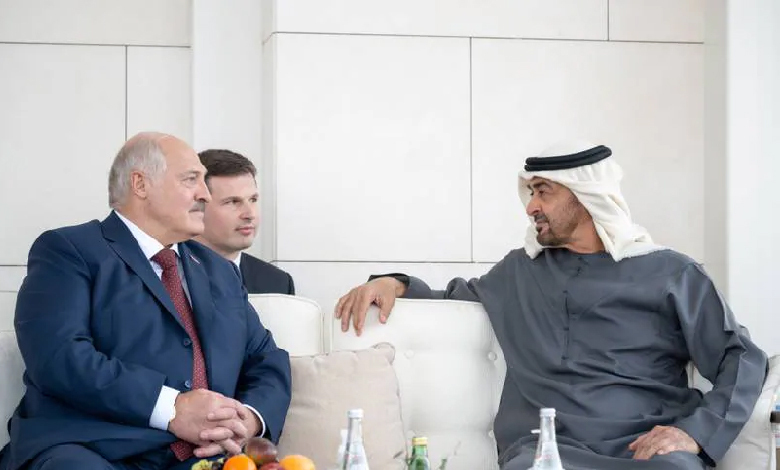Sheikh Mohamed bin Zayed Al Nahyan, the President of the UAE, received his Belarusian counterpart Alexander Lukashenko in Abu Dhabi on Friday. The two met at Qasr Al Bahr and discussed ways to enhance bilateral relations.
Lukashenko’s visit coincides with the COP28 climate conference that runs at Expo City Dubai until December 12. The leader praised the Emirates’ organisation of the Summit and said he hoped it achieves progress on international climate action.
Loss And Damage Fund In The Limelight
The two also discussed developments in the Middle East and the importance of peace and security in the region as the deadly conflict between Israel and Hamas rages on since October 7, claiming tens of thousands of innocent lives and putting fragile systems at risk.
During his visit, the President of Belarus also highlighted the incredible $30 billion loss and damage promise made by his UAE counterpart to bridge the concerning climate financing gap and support reliable climate solutions.
Loss and damage has long been sought by countries that face the disproportionate effects of the climate crisis but have often done the least to trigger the problem. As the Earth heats up further, climate-driven disasters have become more intense and frequent.
The UAE pledged to give $30 billion, that will go towards a new private investment vehicle, ALTÉRRA, that aims to raise $250 billion internationally in the next few years in an effort to create a fairer climate system.
COP28 Marks “Historic” Success On Day 1
The climate Summit marked an early success on its first day as participants reached a historic agreement to operationalise the Loss and Damage Fund. The UAE and Germany have announced $100 million each to the fund, amid notable contributions from other countries.
Read More: Qiddiya City Will Emerge as Global Destination: Saudi Crown Prince
Created at COP27 in Egypt’s Sharm El Sheikh last year, the Fund broadly refers to financial assistance for vulnerable countries to deal with the worst impacts of climate change. COP28 President Sultan Al Jaber called the decision “historic” and “unprecedented”.


















